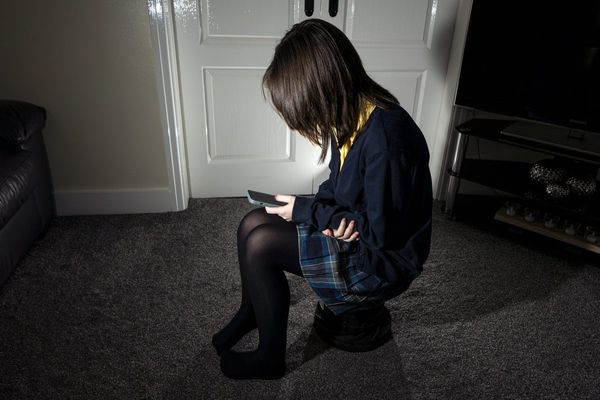
The west London hotel where Fawzia Amini, a senior Afghan judge, her husband and their four daughters have lived for the last nine months has comfortable sofas in the foyer, a restaurant serving tasty meals on the first floor, and friendly reception staff – but it isn’t home.
After the turmoil and danger of fleeing their spacious home in Kabul when the Taliban seized control of the Afghan capital, the family say that while they are grateful for everything the UK government has done for them, they long to be in a place of their own where they can cook their own food, work, study, and entertain relatives and friends.
They are some of the 9,500 Afghans still living in temporary accommodation in the UK on the first anniversary of the fall of Kabul.
Amini’s four daughters have settled into local schools and her eldest daughter is hoping to start a university course soon. Amini hopes they can find accommodation not too far from where they are living in the hotel now, so that the children can continue to attend the same schools. Their education has been a beacon of stability in a year of enormous upheaval.
But searches for accommodation in the area of west London where they are staying have so far proved fruitless. Affordable rented accommodation in London for a family of six is in short supply.
In February this year Amini, 48, and her family were offered a flat in the right area by a woman who had come to the UK decades ago as a refugee and wanted to help others. But bureaucratic roadblocks meant the family were unable to move in.
The family were anxious when they received letters from the Home Office and the Department for Levelling Up, Housing and Communities a few days ago stating: “It is now possible for you to find your own accommodation.”
Amini said that while families were eager to move out of the hotels because the conditions were very difficult, especially for families with small children and for people who are old or sick, the logistics were challenging.
“We have been living in this hotel for nine months. We are very grateful for it but it’s hard to live in a hotel for such a long time,” she said. “Sometimes our emotions are not good. We are crying when we remember our families in Afghanistan. The families living in this hotel invite each other into their rooms. Mothers celebrate their small children’s birthdays in the hotel bedrooms. We want to find a house but we know the search for one will be very difficult.”
Hasina Safi, the acting minister for women in the Afghan government from May 2020 until August 2021, is staying in a hotel just outside London with her husband, their three children aged 14, 16 and 22, and other close family members. The family have been in the hotel for almost a year, having arrived in the UK on 26 August last year. She said the family would like to be in their own home, but the hotel was catering for their day-to-day needs.
“We were in a very critical and dangerous situation in Afghanistan, a matter of life or death. It’s not a time here in the UK to enjoy life. It’s simply a matter of being alive,” she said. “The younger two children are settled at school and the administration at the school has been very supportive.”
Maryam, 42, is the director of a leading Afghan women’s organisation, which works for the empowerment of women in her home country. Working online from her UK hotel room, she is trying to keep the organisation going and to support women in her home country as much as possible. She and her husband, their three children aged six, four and one, her parents and her sisters initially escaped from Afghanistan to Albania, where they stayed for four and a half months. They have lived in hotel rooms for the last six months.
“Of course we are grateful for all the support we have received in the UK but a hotel is not home,” she said. “My baby has grown up in hotels. The hotel rooms are very small and the older children remember our house in Afghanistan and ask where it is. They want to go back there.”
She said many of the women in the hotel were suffering. “They cry a lot and go to the medical centre a lot. They say they were much happier when they were living in Afghanistan before the Taliban took control. These women are part of large families but now they are just sitting in a hotel room with their children.
“Some of the women who have small children are scared to come out of their rooms because they’ve heard that parents in the UK who don’t take care of their children properly have them taken away.
“We are worried about finding a house to live in because we know the housing market in the UK is very difficult and rents are very high. We are not here by choice.”







